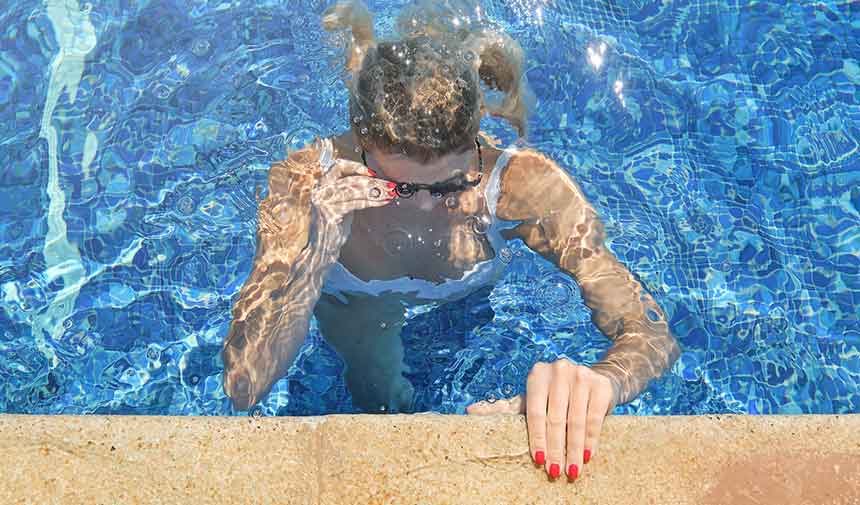Hepatitis A Danger in Dirty Pools, Precautions to Protect Your Health
Pools are preferred places to cool off and have fun in summer. However, dirty pools where hygiene rules are not followed can carry serious health risks. Especially Hepatitis A virus is a disease that can be easily transmitted in such environments and can cause serious health problems. In this article, we will discuss the danger of Hepatitis A virus in dirty pools and the precautions you should take to protect your health.
What is Hepatitis A?
Hepatitis A is an infection that affects the liver and is caused by the Hepatitis A virus (HAV). It is usually transmitted through contaminated water and food or through direct contact with infected people. Pools can be an ideal environment for the spread of the virus because it can spread through feces contaminated with water.
Symptoms of Hepatitis A Virus:
Symptoms of hepatitis A infection appear a few weeks after infection. These symptoms include:
Fever
Fatigue
Loss of appetite
Nausea and vomiting
Abdominal pain
Dark urine
Clay-colored stools
Yellowing of the skin and eyes (jaundice)
These symptoms usually last a few weeks, but in some people they can last up to several months.
Risk of Hepatitis A Transmission in Dirty Pools:
The risk of contracting hepatitis A virus in pools increases when hygiene standards are not adequately maintained. The virus can spread easily, especially in cases where the water is not sufficiently disinfected, chlorine levels are low or the pool is not kept clean.
Inadequate Chlorination:
Chlorine is a common disinfectant used to kill microorganisms in pool water. But if chlorine levels are not sufficient, pathogens such as the Hepatitis A virus can survive and spread.
Pool Hygiene:
Failure to clean pools regularly can cause the virus to accumulate and spread. Lack of hygiene around the pool and in the water increases the risk of infection.
Ways to Prevent Hepatitis A:
You can take some precautions to protect yourself from the hepatitis A virus. These measures will help you maintain your personal hygiene and comply with the hygiene standards of pools.
Personal Hygiene:
Wash your hands thoroughly before and after swimming.
Always take a shower before swimming in the pool.
Avoid getting water in your mouth, nose and eyes while swimming in the pool.
Do not eat or drink in the pool.
Pool Hygiene:
Ensure that pools are regularly checked for chlorine levels and that the water is properly disinfected.
Ensure that pools are regularly cleaned and maintained.
Make sure that the areas around the pool are also clean and hygienic.
Vaccination:
The hepatitis A vaccine is one of the most effective methods of protection against the virus. The vaccine is especially recommended for those living in or traveling to high-risk areas.
General Recommendations for Health Safety in Pools:
In addition to hepatitis A, it is important to pay attention to some general health safety measures to prevent other waterborne diseases.
Pool Water Quality:
Pool water should be tested regularly and have the proper chemical balance. Pools with poor water quality can increase the risk of various infections.
Rules for Pool Users:
Wash your body before using the pool.
Do not consume food or drink in the pool.
Choose outside the pool area to change diapers.
Do not use the pool when you are sick or have symptoms such as diarrhea.
Training for Pool Workers:
It is important that pool workers are trained on how to maintain water quality and hygiene. Trained staff ensures that pools remain safe and clean.
Conclusion:
The risk of Hepatitis A virus in dirty pools can lead to serious health problems. To protect against this risk, it is important to pay attention to personal hygiene measures, ensure that pools comply with hygiene standards and get the Hepatitis A vaccine. By taking these precautions, both individuals and pool operators can ensure health safety and reduce the risk of infection. Following these rules for a healthy and safe swimming experience is also of great importance for public health.



